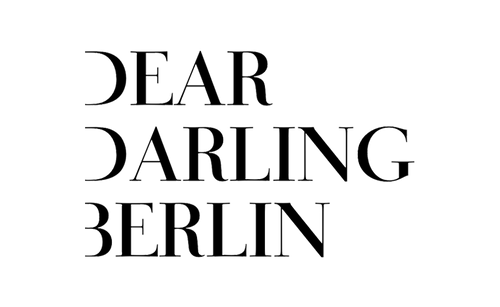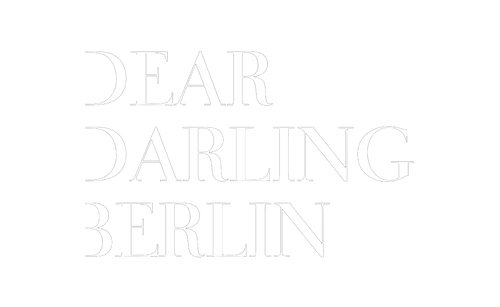1. Dear Charlotte & dear Nhu-Ha, I am very pleased to be able to introduce you and Lotta Ludwigson as part of our Female Founder Community. Please feel free to tell us a little about yourself and your company.
Thank you very much for the opportunity to introduce us here. We are Charlotte and Nhu-Ha, two good friends, former colleagues from the Berlin startup scene and now co-founders of Lotta Ludwigson. Together we gathered the courage to quit our jobs to dedicate ourselves full-time to our vision of a circular and more sustainable fashion industry. Although we have different skills and backgrounds, we are united by a strong dose of idealism as well as a deep admiration for traditional textile crafts, a strong interest in fashion, art and people, and the firm conviction that companies make a valuable contribution to a circular world through responsible actions can.
With Lotta Ludwigson as a slow luxury brand, we create fair, circular and timeless business clothing for women to combine aesthetics and holistic sustainability. We mainly use certified natural materials, follow the Cradle-to-Cradle philosophy in the design process, produce in small quantities and work with small, partly entirely women-run manufacturers within the EU. We also donate for every product sold to our heart project Sparsa in Nepal, which promotes more education about menstrual health, circular production of hygiene products and female empowerment. In addition to our "flagship" product, the first 100% biodegradable trouser suit (consisting of a blazer and suit trousers), we also offer sweater vests, turtleneck sweaters made from the finest mulesing-free virgin wool, a blouse made from organic silk (made in Germany) and various hand-rolled organic Silk scarves from Lake Como.

2. What can you imagine by circular & regenerative fashion and why is it so important?
Actually, almost EVERYTHING is wrong in the fashion industry right now. We are not only in the age of fast fashion, but also of ultra fast fashion. Some companies release thousands of fashion items per day that are produced under inhumane conditions and made from excessive amounts of cheap and toxic materials so that they ultimately become textile waste after just a few wears. According to the Ellen MacArthur Foundation, the equivalent of a truckload of textiles ends up in landfills or is burned every second. Less than 1% of all textiles are even recycled into new textiles. Most textiles are downcycled, burned or illegally disposed of in nature. A sad example of this is the Atacama Desert, which now has so many and high mountains of textiles that they are even visible from space. This textile waste will probably remain there for several hundred years (since the clothing that was dumped there is not made of biodegradable materials, but mostly made of polyester or a polyester mixture) and pollutes the soil and groundwater.
The worst thing about this situation and the underlying linear economic model is that it doesn't have to be that way. One could design clothing to be circular by designing it so that it can again become a resource for something new and circulate endlessly in resource cycles. The concept of “waste” would be completely eliminated. This philosophy is called Cradle-to-Cradle and at Lotta Ludwigson we design our clothing accordingly. Clothing should not only be produced fairly and made from durable, healthy materials, but also be designed in such a way that it never becomes textile waste. To do this, it must be recyclable (textile-to-textile recycling) or biodegradable. You basically imitate the cycle of nature, in which there is no waste, because every “waste” is a resource for something else.

3. It takes many production steps to produce a finished garment. How did you go about finding your suppliers and what were your selection criteria?
We commissioned the first prototype while we were still working in our previous full-time jobs. Before producing one or more prototypes (and thus the first 100% biodegradable pantsuit for women), we invested almost 1.5 years in research and development (R&D). This was necessary because we had to have our own fabrics and shoulder pads developed. Such materials were not available on the market without plastic, toxic chemicals and fair manufacturing. Since we were not yet a legally established organization at that time, we had to use a production agency, otherwise suppliers would not be willing to contact us or establish business relationships. We still work with this production agency, which has a strong focus on sustainability and circularity. You have decades of expertise in sourcing & production management and have valuable contacts with suppliers. This was a real game changer, especially for us who come from engineering and innovation.
We have already taken part in a number of trade fairs and conferences, but the trade fairs have not yet made any significant progress for us. We, on the other hand, like conferences because we are also very interested in academic and scientific excursions on the topic of circular economy and sustainable supply chains in the textile industry. Charlotte has also published scientific articles on this topic or given guest lectures at the university, so it is always important, especially for her, to be up to date. In January we were also in Davos to bring the topic of circular economy in fashion more to the table of decision-makers from politics and business.

4. You have carried out a very successful crowdfunding campaign - congratulations! What are your learnings & what do you think it takes to reach your funding goal?
It took less than 4 weeks from the idea to go-live. The reason for the spontaneous campaign was that we were selected as “Aspiring Designers” as part of Berlin Fashion Week. We were allowed to present our suits on the runway and exhibit them in a showroom. Although we initially accepted the great opportunity, we soon realized that we didn't have a website or webshop yet. Since the processing was simply faster, including the entire payment process behind it, and we needed money anyway to pre-finance the first real production (at that point we only had prototypes), we decided on a crowdfunding campaign. What is needed for this? Definitely a good, high-quality campaign video, cool products to pre-order at different price points (you can also team up with other brands that have a similar philosophy), and lots of great friends and acquaintances who got the link to the campaign right on the first day Share on social media to rank higher on the homepage. Otherwise, it helps to go to lots of events during the campaign period and simply tell EVERY PERSON about your crowdfunding campaign.

5. How important are networking and events when starting a business and do you have any tips on how good networking can be successful?
The term “networking” often has negative connotations, even though coming together and networking is an essential part of starting a business. This is where connections are made, knowledge is exchanged, learning from each other, support and the way for potential future business relationships is paved. Here are some
Tips on how to achieve successful networking:
1. Be authentic!
Instead of aiming for superficial relationships, the goal should be to create real and authentic connections. Instead of just exchanging business cards or LinkedIn profiles, you should really develop genuine interest in the other person. Asking questions, listening and being prepared to share your own insights and thoughts are essential.
2. Long-term perspective
Networking is about long-term relationships. Under no circumstances should you aim to gain short-term benefits for yourself (people notice when someone is only interested in their own benefit, and word gets around quickly). It's about building long-term, trusting relationships at eye level. This can lead to new business relationships, collaborations or even in some cases friendships, but this also takes time.
3. FOMO goodbye
Especially in a big city like Berlin, there are countless networking events every day all year round. It can sometimes make you dizzy. The selection is great because you can find people to exchange ideas with on every topic, but in the long run it can be tiring if you add additional hours of networking after a long day at work. Our recommendation is to listen more often to what you need at the moment in order to be able to keep up the marathon of starting a business well and healthily. Instead of giving in to FOMO (Fear of missing out), spend an evening alone, with friends or family.
4. Networking can be learned
Do you generally find networking difficult because it doesn't suit your nature? The good news is that you can learn “networking”. The more you go to such events, the easier it becomes over time. A good tip is always to be one of the first there, then you can usually easily get into conversation with the hosts or other guests before groups can even form.
6. What are your business wishes & dreams for 2024?
Oh, we have many plans! This year we will be launching a very special new suit style, and of course we hope that it will be a complete success. Because we can already reveal this much: “Dopamine dressing” works and helps you achieve your goals with more self-confidence and confidence in everyday life. Stay tuned.
We also hope to continue great collaborations with other sustainable brands and joint pop-up events. We would also like to further develop our “Suit Affairs” event series to create a place where great women can come together and experience our pieces live and in color. We want to intensify our close relationships with suppliers through further production visits. At the same time, we remain committed to promoting education around circularity and sustainability in the fashion industry. And along the way, we naturally want to reach more and more people and inspire them with our vision of making the fashion industry more circular and sustainable little by little.

____________________________
MORE INFO
If you would like to find out more about Charlotte & Nhu-Ha, please take a look here:
To the website: www.lottaludwigson.com/de
To Instagram: @lottaludwigson

